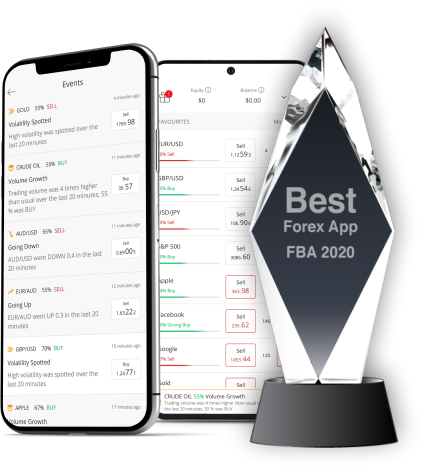
Despite a slowing economy, industrial REITs are enjoying higher returns. Their outperformance can be attributed to e-commerce which continues to grow at a rapid pace. The low initial investment and ease of re-leasing are another driver. Let's examine the different reasons why warehouse REITs have performed well. Here are some examples:
e-commerce is a second driver of industrial REIT outperformance
Industrial REITs benefit from the e-commerce boom. According to the U.S. Commerce Department e-commerce sales increased 44% in the June-end period. eMarketer predicts eRetail sales will make up 14.5% of U.S. retail revenues in 2014. This is good news, as industrial REITs can take advantage the increasing demand for industrial space via ecommerce.
While many sectors are dealing with tough times, the COVID-19 regulations remain relatively unaffected by the industrial sector. Increased e-commerce activity leads to a higher demand for distribution and warehouse centers. Last-mile industrial properties in high-income areas are experiencing strong pricing, occupancy, and rental growth. E-commerce plays a second role in the performance of industrial REITs.

Strategically located modern centres
Investors who are looking to maximize their risk-adjusted returns and make the best investment choice for themselves, Industrial REITs can be a great option. Warehouses that are located in the last mile' should see a rise in retailers moving their supply chain closer to consumers. These warehouses are more valuable and generate cash flow quicker than their peers. These warehouses offer a few things you should look out for. They are more modern, more efficient, as well as a good investment.
First, REITs should consider the needs and wants of modern tenants. They need mezzanine space and rooftop solar panels. Also important are employee amenities, flex space, and security. Logistics customers also require flexible facilities. The industrial design of the space is changing with automation. Kiva Systems was acquired by Amazon in 2012. This allows robots to move pallets and sort inventory. The ideal location for a company that depends on these robots is close to existing labor pools.
Low initial investment
Investors looking to diversify their portfolios or generate income can choose a warehouse REIT as an investment option. These investment vehicles have been around since decades and provide growth, income and diversification. The past history of REITs has shown high returns and attractive dividend yields. They are also a good inflation hedge. Additionally, REITs can be purchased and traded easily. If you do not want to pay high fees for financial advisers, you have other options.
Warehouse REITs are a way for investors to gain access to rapidly growing segments of the economy. Healthcare facilities, for instance, is one of the fastest growing sectors in the United States. You also have the option of outpatient care centres and retirement communities. Warehouse REITs are a great option because they can offer excellent returns. Not only are they more profitable than real property investments, but they also have a higher growth rate, are less complex to manage, require less paperwork, and are much liquider than real-estate investments.

Re-leasing is very simple
A REIT is a great way to increase your investment return. They are highly sought-after and can make a profit. The key is to select a region with high housing costs, steady rents, and low vacancy rates. The San Francisco Bay Area is a good example of an area that can be profitable for a REIT. In San Francisco, rents for warehouses rose 7% in the first quarter.
FAQ
What's the difference between a broker or a financial advisor?
Brokers are individuals who help people and businesses to buy and sell securities and other forms. They take care of all the paperwork involved in the transaction.
Financial advisors are experts in the field of personal finances. Financial advisors use their knowledge to help clients plan and prepare for financial emergencies and reach their financial goals.
Financial advisors can be employed by banks, financial companies, and other institutions. Or they may work independently as fee-only professionals.
If you want to start a career in the financial services industry, you should consider taking classes in finance, accounting, and marketing. Additionally, you will need to be familiar with the different types and investment options available.
What are some advantages of owning stocks?
Stocks have a higher volatility than bonds. The value of shares that are bankrupted will plummet dramatically.
However, share prices will rise if a company is growing.
Companies often issue new stock to raise capital. This allows investors the opportunity to purchase more shares.
Companies can borrow money through debt finance. This gives them access to cheap credit, which enables them to grow faster.
Good products are more popular than bad ones. As demand increases, so does the price of the stock.
As long as the company continues to produce products that people want, then the stock price should continue to increase.
How do I choose a good investment company?
A good investment manager will offer competitive fees, top-quality management and a diverse portfolio. The type of security that is held in your account usually determines the fee. Some companies charge no fees for holding cash and others charge a flat fee per year regardless of the amount you deposit. Others charge a percentage based on your total assets.
You also need to know their performance history. A company with a poor track record may not be suitable for your needs. Avoid companies that have low net asset valuation (NAV) or high volatility NAVs.
Finally, it is important to review their investment philosophy. A company that invests in high-return investments should be open to taking risks. If they're unwilling to take these risks, they might not be capable of meeting your expectations.
How can I invest in stock market?
Brokers can help you sell or buy securities. Brokers can buy or sell securities on your behalf. Trades of securities are subject to brokerage commissions.
Banks charge lower fees for brokers than they do for banks. Banks will often offer higher rates, as they don’t make money selling securities.
To invest in stocks, an account must be opened at a bank/broker.
If you hire a broker, they will inform you about the costs of buying or selling securities. He will calculate this fee based on the size of each transaction.
Ask your broker:
-
You must deposit a minimum amount to begin trading
-
What additional fees might apply if your position is closed before expiration?
-
What happens if your loss exceeds $5,000 in one day?
-
How many days can you keep positions open without having to pay taxes?
-
How you can borrow against a portfolio
-
How you can transfer funds from one account to another
-
What time it takes to settle transactions
-
The best way to sell or buy securities
-
How to Avoid Fraud
-
how to get help if you need it
-
whether you can stop trading at any time
-
Whether you are required to report trades the government
-
Reports that you must file with the SEC
-
What records are required for transactions
-
How do you register with the SEC?
-
What is registration?
-
How does it affect me?
-
Who must be registered
-
When should I register?
What is a fund mutual?
Mutual funds are pools that hold money and invest in securities. Mutual funds offer diversification and allow for all types investments to be represented. This reduces risk.
Managers who oversee mutual funds' investment decisions are professionals. Some funds offer investors the ability to manage their own portfolios.
Because they are less complicated and more risky, mutual funds are preferred to individual stocks.
Statistics
- Individuals with very limited financial experience are either terrified by horror stories of average investors losing 50% of their portfolio value or are beguiled by "hot tips" that bear the promise of huge rewards but seldom pay off. (investopedia.com)
- The S&P 500 has grown about 10.5% per year since its establishment in the 1920s. (investopedia.com)
- Even if you find talent for trading stocks, allocating more than 10% of your portfolio to an individual stock can expose your savings to too much volatility. (nerdwallet.com)
- Ratchet down that 10% if you don't yet have a healthy emergency fund and 10% to 15% of your income funneled into a retirement savings account. (nerdwallet.com)
External Links
How To
How can I invest in bonds?
An investment fund, also known as a bond, is required to be purchased. You will be paid back at regular intervals despite low interest rates. This way, you make money from them over time.
There are many ways you can invest in bonds.
-
Directly buying individual bonds
-
Purchase of shares in a bond investment
-
Investing through a bank or broker.
-
Investing through a financial institution
-
Investing through a pension plan.
-
Invest directly through a stockbroker.
-
Investing with a mutual funds
-
Investing through a unit-trust
-
Investing with a life insurance policy
-
Private equity funds are a great way to invest.
-
Investing through an index-linked fund.
-
Investing with a hedge funds